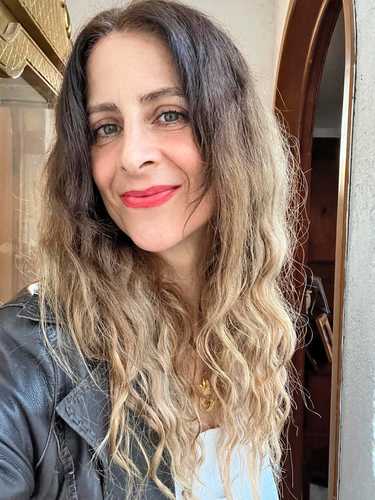in the novel The monitor’s son, this character gravitates all the time in a macabre way
; The narrative explores the abandonment of childhoods, which also means a future of neglect of the human and the person
explained its author, Rowena Bali.
Regarding the title published by Nitro Press, which will be presented on April 21, the writer told The Conference of that minor who never leaves the crib and is cared for and educated by a monitor. There is a play on words, because a monitor is what teaches and is also the television screen; So the result is a child educated by television
.
Bali (Cuautla, 1977) noted that there is a strong disenchantment in this novel, which is not only about the present, but about the future, which is going very quickly. In terms of humanity, the future is abandoning us in a terrible way. Now we have a very interesting example with artificial intelligence, which not only abandons us, but replaces us. It’s crazy
.
He recalled that when he began writing this text, more than 20 years ago, there were a few television channels, while now there are thousands of possibilities and different types of screens.
“The education we received in our childhood still left us late to go out to play or do other things; Currently, children live immersed in cell phones. Not only in the cities, because wherever the cell phone reaches it co-opts people’s minds.
I would like to see it as another story, perhaps a bit extreme. It is an absolute reality that for many years there have been people in this world who only have contact with screens and there are more and more of them.
The protagonist, Gerzon, is so extraordinary like so many people and characters. In every person, if you scratch, you will find very interesting and peculiar aspects
.
Isela is obsessed with her observation, and then realizes that it is an infertile story, because it is a “personification of the constant failure that we can experience when we are inserted in this society, in this routine, without realizing that there is enormous potential.” In us.
Isela finds her narrative capacity in Gerzon. She talks a lot, expresses all the time. When she transcribes recordings of her monologues, she realizes that she speaks better than many writers. Something Gerzon is not aware of. He is a dangerous man, just like Isela, because of all the mental illness that surrounds him.
The editor also summarized: They are two characters who are too focused on too few things in their lives. Gerzón has only explored two books and he does not leave this very tight circle of things that range from the office, the bar, the club, women and the very superficial relationships that he has with them.
.
The narrator commented that it is a novel that first presents gray personalities and then very bright ones, since there is a passage in which Gerzon is happy and then returns to darkness, but in a deeper way.
He added: There are certain clues that I try to put in my work to advance the reader a little, so that they know that later there will be something that may interest them even more than what they are reading at that moment.
.
Rowena Bali mentioned that her interest is to remove personality filters through literature and to have freedom. The entire writing process is very interesting for me, because they are periods in which I let an imagination flow that is always latent in my life. If you ask me what my wish is, I would answer that it is that I find the act of writing very pleasant, that I always have time to do it and that my readers understand what I meant in what I wrote.
.
Regarding powerful themes, such as sensuality and sexuality, the narrator said that they are very present themes in her book: The morbid agent is manifest to the extreme in moments. In the case of Gerzon, there is a lot of that in different tones, but his sexuality or that of my characters is always strange. Finally, I think that all sexualities can have something strange
.
The novel The monitor’s son will be presented on April 21 at 3 p.m. in Forum 6 of the Book and Rose Festival, which will take place starting on the 19th of this month, in person, in the spaces of the University Cultural Center of the University Autonomous National of Mexico.
